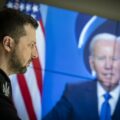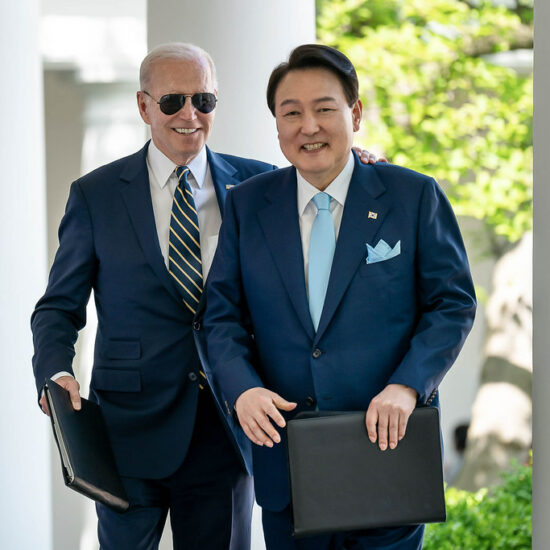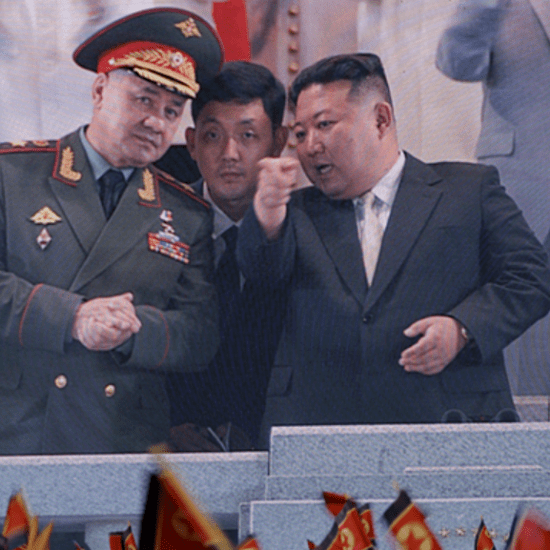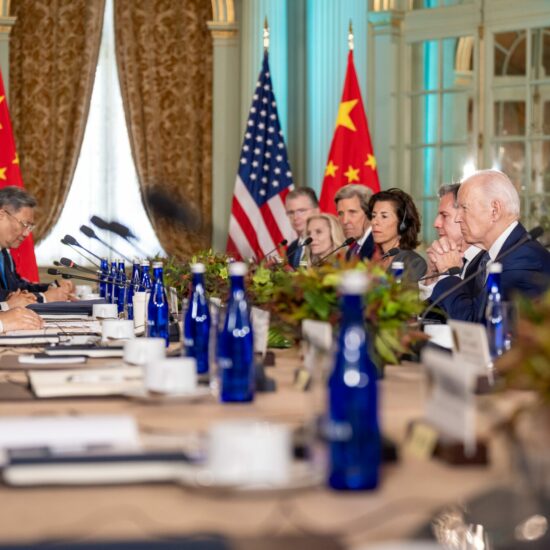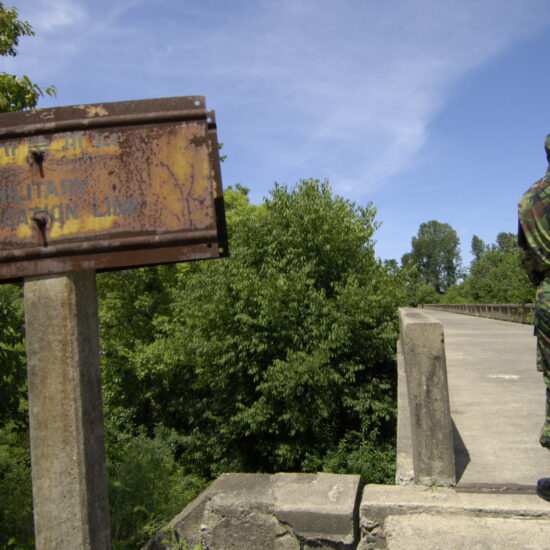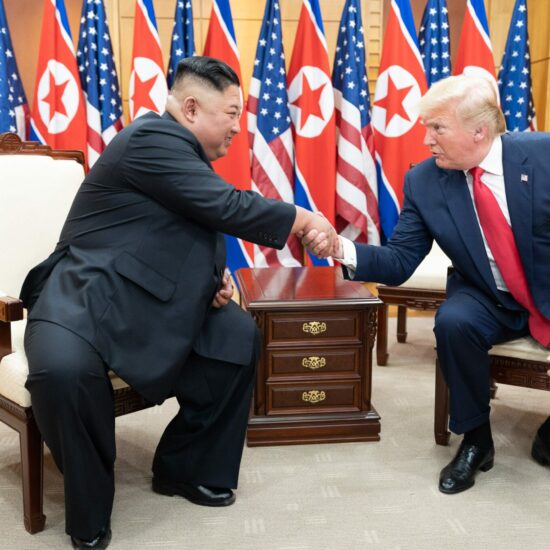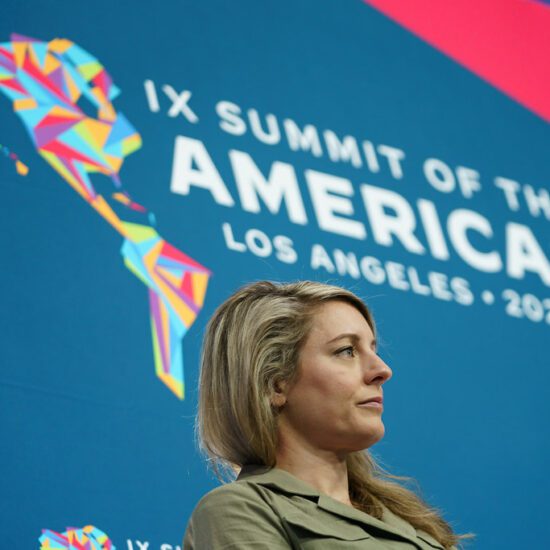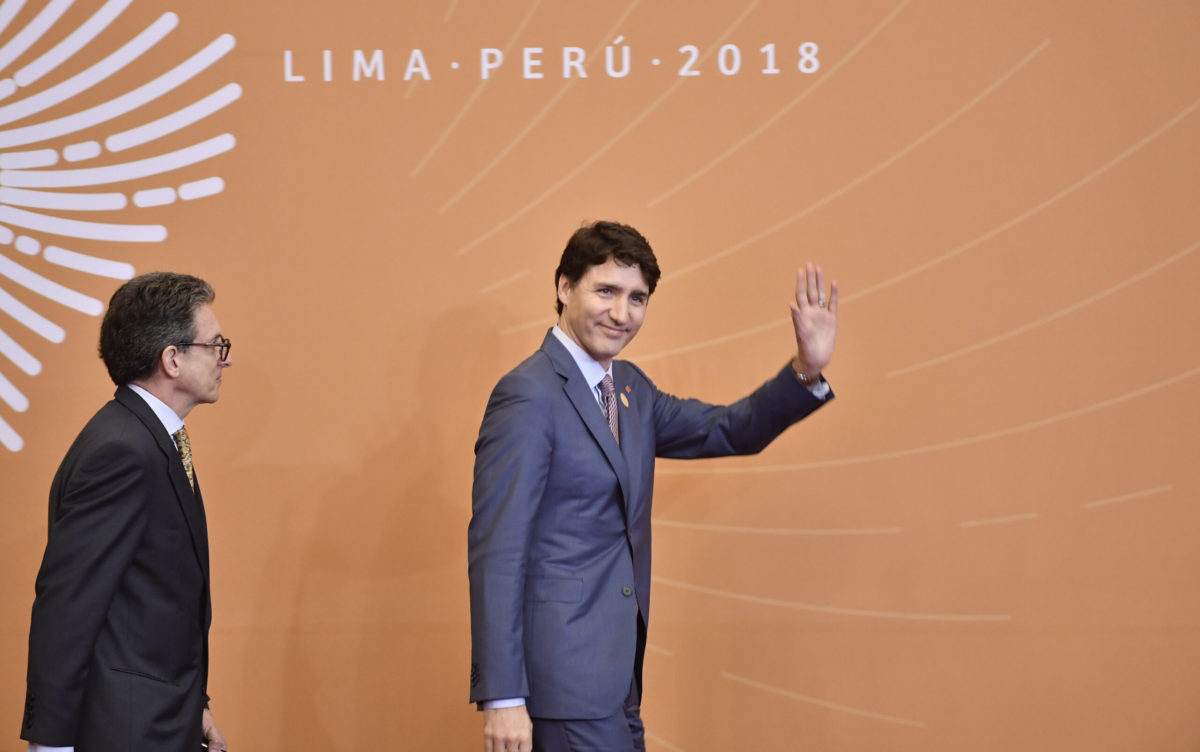
Prime Minister Trudeau at a summit in Lima, Photo by Peru’s Ministry of Foreign Affairs, April 2018
To his credit, Prime Minister Trudeau improved Canada’s handling of migration in his early years, yet Canada’s wider foreign policy strategy concerning migration and refugees has faltered within the past year.
By Amadeus Narbutt
The world has seen a wave of protests globally, but nowhere has it been more apparent than in Latin America, with recent destabilizing protests occurring across the continent, from Chile and Ecuador to Bolivia and Haiti. In addition to these protests, there are significant political shifts and instabilities emerging on the continent. The last remaining leader of the 2000s leftist Pink Tide, Evo Morales, was recently reelected in Bolivia in a very contentious election. Argentina’s recent election shifted the country to the left but has brought corruption back into the highest offices of government. Drug cartels remain powerful enough to resist the power of Mexican security forces. Functioning democracy in Honduras has crumbled under immense corruption. There continues to be significant waves of migration both leaving and migrating within Latin America. Cuba and Venezuela continue to suffer under American sanctions, while the number of Venezuelan migrants settling in neighbouring countries continues to rise. All the while, the Amazon continues to burn. Canada requires a wise and steady diplomatic strategy in a new Latin America, which is undergoing profound political shifts in 2019.
Among all the chaos, there is also a reorganization of diplomatic alliances within Latin America, especially in light of recent electoral changes. Alberto Fernandez’s election in Argentina has already resulted in strained relations between his country and Brazil. Venezuelan opposition leader, Juan Guaido, continues his claim to be the legitimate leader of Venezuela, leading to diplomatic rifts between Venezuela and other Latin American states. And, new progressive alliances between some established leftist governments on the continent and newly elected ones seem primed to emerge in opposition to the Lima Group. Amid all this instability, Canada has pursued a diplomatic strategy that is incoherent and hypocritical at best, and purposefully biased at worst.
To his credit, Prime Minister Trudeau improved Canada’s handling of migration in his early years, yet Canada’s wider foreign policy strategy concerning migration and refugees has faltered within the past year. This unfortunate shift comes at a time when the aforementioned rise in migration from Latin America necessitates bold Canadian action Further, complicity of the Canadian Government in the Venezuelan crisis (through economic warfare and its actions in the Lima Group) has only contributed to regional destabilization, which exacerbates the need for refugee resettlement from the affected regions. The resulting migratory crisis in Venezuela may be the world’s largest by 2020 and has already caused diplomatic tensions between regional actors and rising xenophobia. Instead of pursuing bold foreign policy actions that could assist with the refugee crisis, like a refugee resettlement program or other avenues of regional cooperation concerning migration, Canada continues to be part of the problem.
The Trudeau Government claims that some of their top priorities for the Latin American and Caribbean region are the promotion and defence of human rights and democracy. Yet the Canadian diplomatic apparatus systematically ignores human rights abuses and corruption of its right-wing allies in the region.
Chile, a member of the Lima Group, is committing unspeakable human rights abuses as a means of crushing the dissent of the historic anti-neoliberal protests that are ongoing. Eighteen people have died during the violence of the protests and state backlash to public mobilization. 7,000 people have been arrested for exercising their democratic right to protest. There have been reports of torture by government forces against protestors. In response, Canada has remained silent because Chile is considered an ally.
Haiti is undergoing an unprecedented, and yet extremely underreported political crisis. In reaction to crippling corruption and shortages of basic goods, protests have gripped the country. The Haitian economy is at a virtual standstill and the capacity of the Haitian government to provide basic public services has essentially disappeared. For nearly a year and a half, protestors have insisted that Jovenel Moïse, the Haitian President, step down. Amnesty International has verified human rights violations and abuse by government forces in response to the protests, including firing on crowds of peaceful protestors with semi-automatic rifles, beating of fleeing protestors, and the use of firearms at extremely close range. Further, Moïse’s election is largely seen as fraudulent. Despite these accusations, the Trudeau Government has not yet responded to significant public pressure from within Haiti and Canada to withdraw their support of President Moïse.
In time as tumultuous as the current moment, it is in Canada’s interest to be rightfully viewed by Latin American governments as a fair broker and even-handed diplomatic actor. Rather than pursue an even-handed approach, Canada has remained reactionary and biased in its Latin American foreign policy. Few explanations for this come to mind other than that the Trudeau Government views successful and sustainable diplomacy in the region as relatively unimportant. Eric Miller at the Canadian Global Affairs Institute has stressed that Canada must ‘make itself relevant’ in the region, quoting a famous diplomatic mantra: “You have to be there!”. While Canada’s southernly continental neighbours undergo political shifts, the re-working of alliances, and destabilizing political crises, there will be a need for regional and hemispheric cooperation. Canada should position itself now to participate in such dialogue. Refraining from hypocrisy in its diplomatic affairs is a necessary first step.

